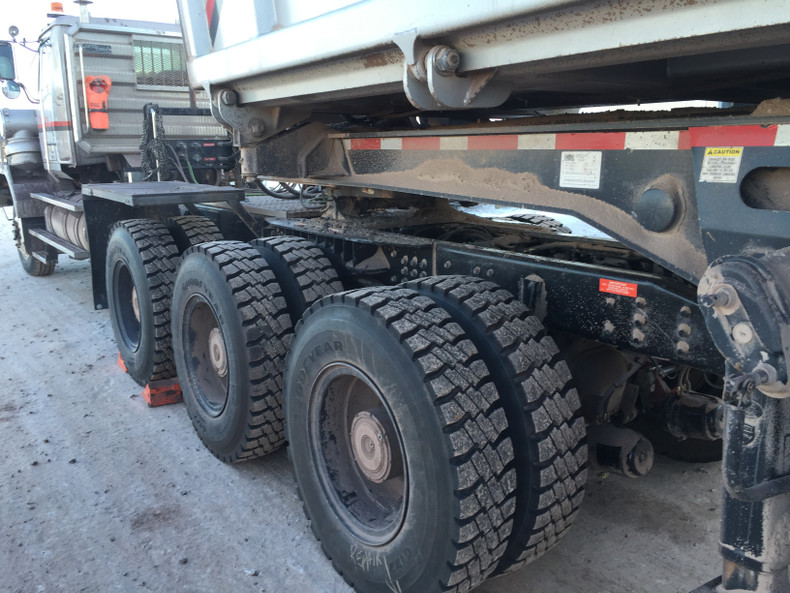Have you ever driven in hazardous conditions or witnessed reckless driving conduct from other motorists? Rain, fog, snow, and ice are just some of the daily risks that truck drivers encounter. Distracted drivers, who play with their phones instead of maintaining their eyes on the road, have become one of the most lethal risks on highways. Aggressive drivers are another source of concern, particularly in larger cities. With so many possible hazards, being a safe driver is essential, and as our trucker friends will tell you, getting home to your family safely is a trucker's priority.
●Use defensive driving techniques.
Defensive driving is a type of driving that urges truckers to be always alert for potential hazards and changes in driving or road conditions. Drivers are taught to anticipate potentially harmful situations and make safe, well-informed decisions while behind the wheel to limit the chance of accidents and injuries. Drivers who employ defensive driving practices are less likely to be involved in accidents, so you won't have to worry about costly repairs, claim settlements, or higher insurance premiums.
●Create preventative maintenance schedules.
The safety of drivers begins with the safety of the trucks they are travelling. Trucks and tractor-trailers that haven't kept up with routine maintenance, such as oil and brake pad changes, are more likely to break down on the highway. Telematics devices provide real-time access to odometer and engine data and failure codes.
Your mechanics may create complex preventative maintenance programs based on mileage, days, past breakdown history, and more and receive real-time warnings for important fault codes using this information. You can keep your vehicles in good shape by doing routine maintenance and proactive repairs, allowing drivers to prevent failures while on the road.
●Maintenance of the vehicle.
Make sure your pre-trip inspection is completed. The tires and brakes are very important given how much weight is on them. Any abnormalities should be reported to dispatch as soon as possible. You are risking your safety and the safety of others on the road if you skip or gloss over procedures in your inspection.
●Take notice of the climate conditions.
Subscribe to weather alerts to know what the weather is like before going on a trip. Winter weather is particularly hazardous since it accounts for nearly 25% of speeding-related trucking accidents. For snowy or slippery roads, you should reduce your speed by half. In the winter, give yourself more time for everything—signal longer before turning, double your following space, and change speed slowly. Consider pulling over if you notice other truckers doing so.
●Always wear your seatbelt.
This is a no-brainer, but it's crucial. Always use your seatbelt when driving the truck. Don't take a chance. Seat belts have been proven to save lives and reduce injuries in accidents. In a collision, it also prevents you from being ejected from your vehicle.
●Keep tractor and trailer lights on.
Keep your headlights and clearance lights on at all times when driving. Also, maintain your lights clean at all times. It is important to be visible for your safety. When you drive with your lights on, other motorists will be able to see your truck sooner. Other drivers will have more time to adjust to any potential hazards due to this.
●Adhere to the speed limit.
Travel at or below 62 mph (100 kph) or the otherwise posted speed limit of the roadway being traversed to guarantee your safety and the safety of those around you. Always maintain a safe speed that is established by the various driving situations.
●Stay away from drugs and alcohol.
While it may seem self-evident, driving while intoxicated is extremely dangerous and should be avoided. Being under the influence might cost you your job and endanger your safety.
●Slow down for turns/curves.
When turning on a curving road or at an off-ramp, be cautious. Adjust your speed to account for changing lanes and other vehicles.
●Eat well and get enough sleep.
You'll be more attentive on the road if you eat a better diet and get plenty of rest. Make sure you get enough sleep and take a few minutes to refresh if you begin to feel sleepy. Take a little nap, stretch your legs, or eat a meal. When you eat junk food, consume sugary drinks, or eat large meals, you may become tired, so try to find healthier alternatives.
Try to use these safety tips the next time you're on the road. It is equally important that your truck has genuine OEM parts to ensure your safety. You can find that and much more at Truck Suspension Parts. Visit the website to know more today!


